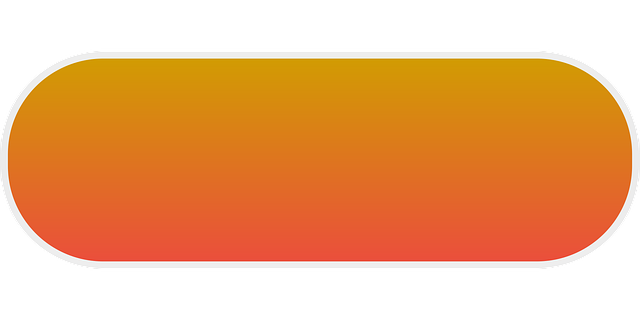AI is revolutionizing commercial landscaping by enhancing irrigation management through sophisticated algorithms that predict water needs based on weather and environmental conditions, ensuring optimal watering schedules. Smart systems powered by AI minimize water waste, quickly detect leaks, and foster sustainability, driving significant improvements in public space cleanliness. AI public space cleanliness scoring algorithms use computer vision and machine learning to objectively assess litter, vegetation health, and irrigation infrastructure, enabling data-driven decisions for continuous improvement and sustainable urban green spaces.
“Revolutionize commercial landscaping irrigation with AI leak detection—a game-changer in water management. This article explores how artificial intelligence is transforming urban spaces, enhancing public area cleanliness, and optimizing water usage. We delve into the role of AI algorithms in identifying leaks, reducing waste, and promoting sustainable practices.
By implementing advanced scoring systems for public space cleanliness, cities can measure success and drive continuous improvement, ensuring efficient irrigation and vibrant, lush landscapes.”
- Understanding AI's Role in Commercial Landscaping: A Revolution in Irrigation Management
- Leak Detection Algorithms: Enhancing Water Efficiency and Public Space Cleanliness
- Scoring Systems for Public Space Cleanliness: Measuring Success and Driving Continuous Improvement
Understanding AI's Role in Commercial Landscaping: A Revolution in Irrigation Management

In the realm of commercial landscaping, Artificial Intelligence (AI) is revolutionizing irrigation management, enhancing efficiency and contributing to a cleaner, greener public space. AI’s role extends beyond mere automation; it involves sophisticated algorithms that can analyze vast data from sensors embedded in the landscape. These algorithms are instrumental in predicting water requirements based on weather patterns, plant types, and environmental conditions, ensuring optimal watering schedules.
By leveraging AI, landscaping professionals can achieve remarkable results in terms of public space cleanliness. Smart irrigation systems powered by AI adapt to changes in usage patterns, minimizing water waste. Moreover, these systems can detect leaks promptly, enabling swift repairs that prevent water loss and maintain the integrity of the landscape. This technology promises a sustainable future for urban green spaces, aligning with growing global efforts to preserve resources and promote environmental stewardship.
Leak Detection Algorithms: Enhancing Water Efficiency and Public Space Cleanliness

Leak detection algorithms, powered by AI, are transforming commercial landscaping irrigation systems, leading to significant advancements in water efficiency and public space cleanliness. These intelligent systems leverage machine learning techniques to analyze vast amounts of sensor data in real-time, identifying even the subtlest anomalies that could indicate leaks or water wastage. By constantly monitoring irrigation networks, these algorithms can promptly flag issues, enabling swift action to mitigate potential damage and reduce unnecessary water consumption.
The integration of AI into leak detection offers several advantages for public spaces. Firstly, it allows for a more precise scoring of cleanliness in urban areas by correlating water usage data with observed environmental conditions. This scoring system can help municipalities and landscape managers prioritize maintenance efforts, ensuring that resources are allocated efficiently to keep public spaces not only watered but also clean and well-maintained. Furthermore, AI-driven leak detection contributes to broader sustainability goals by minimizing water waste, thereby fostering a greener and more environmentally conscious urban environment.
Scoring Systems for Public Space Cleanliness: Measuring Success and Driving Continuous Improvement

Public spaces, such as parks and urban gardens, play a vital role in community well-being. Ensuring their cleanliness and efficient water management is essential for sustainable cities. Here’s where AI public space cleanliness scoring algorithms step in as game changers. These algorithms employ computer vision and machine learning techniques to analyze visual data from satellites, drones, or cameras, objectively assessing various aspects of cleanliness: litter presence, vegetation health, and irrigation infrastructure integrity.
Scoring systems are designed to be dynamic, providing real-time insights for stakeholders like park managers and local governments. By regularly evaluating these public spaces, cities can identify problem areas, track improvements over time, and make data-driven decisions. This approach fosters a culture of continuous improvement, ensuring that urban green spaces remain vibrant, safe, and sustainable for all to enjoy.
The integration of AI in commercial landscaping, particularly through advanced leak detection algorithms and public space cleanliness scoring systems, represents a significant step towards sustainable and efficient water management. By leveraging these technologies, businesses can optimize irrigation practices, reduce water waste, and contribute to cleaner, better-maintained public spaces. As the adoption of AI in this sector grows, continuous improvements driven by data-backed insights will further enhance water efficiency and environmental stewardship, creating a greener, more vibrant future for our urban environments.
